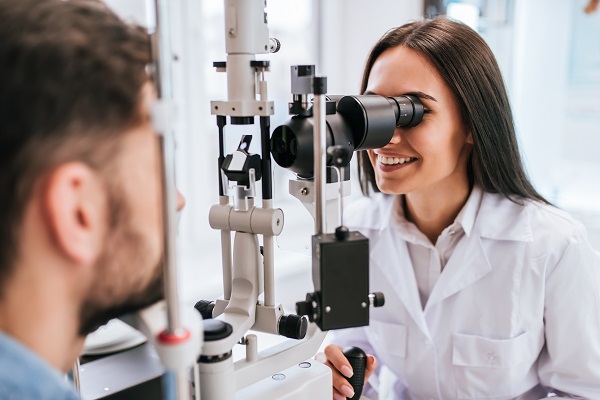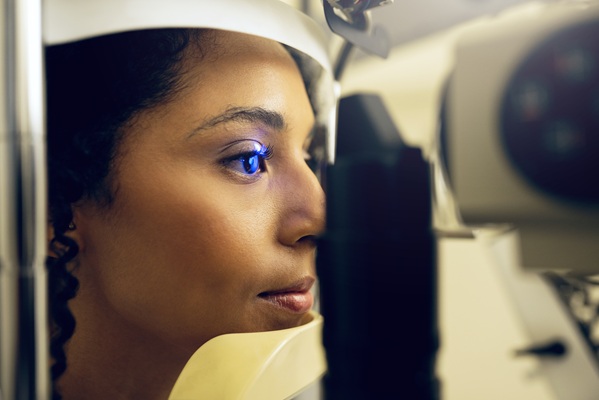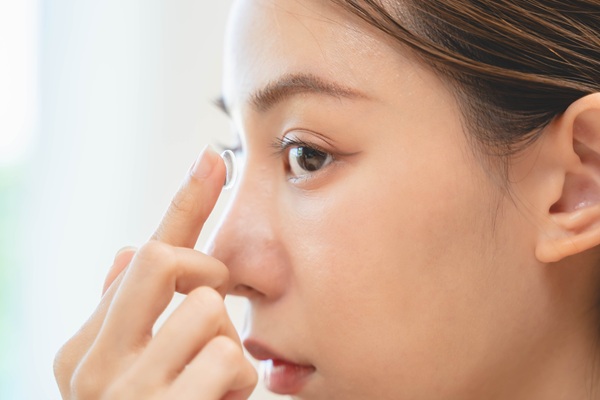Can an Eye Doctor Detect Diabetes?

Eye doctors are very skilled at what they do. Although they primarily work on the eyes, they are able to help detect conditions that not only put the eyes at risk but affect the whole body. Diabetes is hard to diagnose because it typically affects the internal organs of the body, as opposed to producing physical external symptoms. However, the eyes are one indicator that patients can rely on when it comes to diagnosing diabetes.
Regardless of concerns about diabetes, everyone should still regularly visit an eye doctor. Annual exams allow eye doctors to help patients maintain good eye health, while also ensuring that there are no abnormalities present, such as diabetes. Want to know more about eye doctors detecting diabetes? This article discusses the details.
Can an eye doctor detect diabetes?
Below, we discuss whether or not an eye doctor can detect diabetes. We also outline how the detection process works. Keep reading to find out more.
Eye doctors and diabetes
A lot of people may be surprised to learn that eye doctors can indeed detect diabetes. While most people visit their primary care physician for a diagnosis, a lot of cases are actually detected by an eye doctor.
How is it detected?
When a patient is suffering from diabetes, an eye doctor may be able to detect it by looking at the capillaries in the retina of the eye. The capillaries may leak blood or a fluid that is yellow in color. Oftentimes, only an eye doctor is able to notice these small abnormalities within the eyes. The symptoms associated with diabetes are not all that noticeable to the average person.
The detection process
During an annual examination with an eye doctor, patients can expect to have their eyes looked at very closely. Certain machines may be used to allow the eye doctor a better look at the structure of the eyes. Both the blood vessels and optic nerves will be closely looked at to determine whether any noticeable conditions are present.
If there are indicators that diabetes or any other type of condition is present, the eye doctor will likely run additional tests to confirm their theory. Once the patient is informed of the condition, they will be referred back to their primary care physician. However, the care for the eyes will be treated within the optometry office. When the eyes leak blood or other fluids, the eye doctor may have to go in and repair the damage.
Get started with an eye doctor today!
Visiting an eye doctor on an annual basis will help ensure that things like diabetes are detected early on. If you have questions or concerns about detecting diabetes then reach out to our team today so that we can help you. Our trained eye doctors can provide you with additional information as well as check your eyes. Give us a call or stop by our office today.
Request an appointment here: https://www.texasoptical.net or call Texas Optical at (214) 771-7333 for an appointment in our Dallas office.
Check out what others are saying about our services on Yelp: Read our Yelp reviews.
Recent Posts
For those living with diabetes, undergoing a diabetic eye exam is one of the most important steps in protecting their vision and overall eye health. High blood sugar levels can lead to a range of complications, including conditions that damage the eyes over time. These exams help detect these issues before they become serious, allowing…
Contact lenses provide clear vision and convenience for individuals who prefer an alternative to eyeglasses. However, proper care and maintenance are essential to prevent infections, irritation, and eye damage. Neglecting hygiene practices can lead to serious eye conditions, including corneal ulcers and keratitis. Understanding how to clean, store, and handle contact lenses ensures long-term eye…
Maintaining eye health and preventing long-term issues is the result of consistent and quality vision care. Many people focus on overall wellness but may overlook daily habits that support healthy eyesight. However, taking simple steps each day can protect vision, reduce eye strain, and prevent future complications. By making eye health a priority, it is…
Prescription contacts provide vision correction, comfort, and convenience for those who do not want to wear glasses. However, caring for and wearing contacts takes some getting used to. Learning to insert, remove, and maintain them will help ensure a comfortable and safe experience.Not all contact lenses are the same, and choosing the right pair is…


